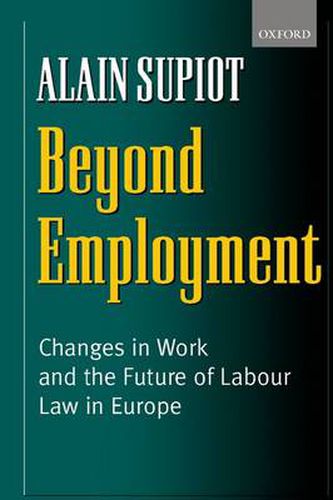Readings Newsletter
Become a Readings Member to make your shopping experience even easier.
Sign in or sign up for free!
You’re not far away from qualifying for FREE standard shipping within Australia
You’ve qualified for FREE standard shipping within Australia
The cart is loading…






This book is the English edition of what has become widely known as ‘The Supiot Report’ - a bold and far-reaching look at the changing nature of work initiated by the EC. It takes as its starting point the profound changes that have taken place in the underlying employment relationship and associated human resource practices over the past twenty years. These developments are placed in their economic, social, institutional, and legal contexts. Competitive pressures on firms, the search for greater efficiency and effectiveness in the delivery of public services, the changing role of women in society, and the desire for greater choice on the part of individuals are all important motives for change. The legal framework and the structures and organizations which represent the interests of workers and employers must respond to these changes. Drawing on illustrations from a number of European countries, the book suggests that the legal framework should encourage greater collaboration in the workplace, particularly over issues such as training. But it should also place work within its social context and facilitate genuine choices by individuals.
$9.00 standard shipping within Australia
FREE standard shipping within Australia for orders over $100.00
Express & International shipping calculated at checkout
This book is the English edition of what has become widely known as ‘The Supiot Report’ - a bold and far-reaching look at the changing nature of work initiated by the EC. It takes as its starting point the profound changes that have taken place in the underlying employment relationship and associated human resource practices over the past twenty years. These developments are placed in their economic, social, institutional, and legal contexts. Competitive pressures on firms, the search for greater efficiency and effectiveness in the delivery of public services, the changing role of women in society, and the desire for greater choice on the part of individuals are all important motives for change. The legal framework and the structures and organizations which represent the interests of workers and employers must respond to these changes. Drawing on illustrations from a number of European countries, the book suggests that the legal framework should encourage greater collaboration in the workplace, particularly over issues such as training. But it should also place work within its social context and facilitate genuine choices by individuals.